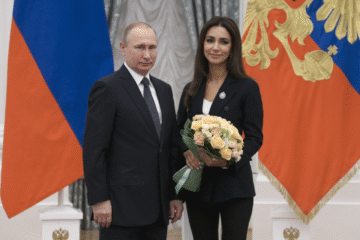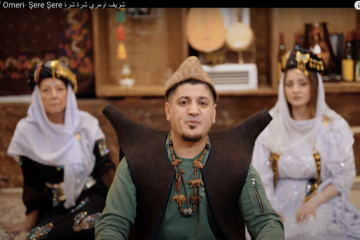Diana Kalashova’s New Release “SISTER” — A Tribute to Family, Friendship, and her Ezidi Roots
In her newest release SISTER, Ezidi singer Diana Kalashova joins voices with her younger sister Sofia in a heartfelt tribute to sisterhood, love, and family. Written together with their family and performed in their native Ezdiki language, the song captures the intimate bond between siblings and reflects Diana’s continued commitment to her roots, passion, and artistry. In this exclusive interview with Ezidi Times, Diana opens up about the creative process, her secret vault of unreleased music, and the emotional message behind her most personal song yet.



